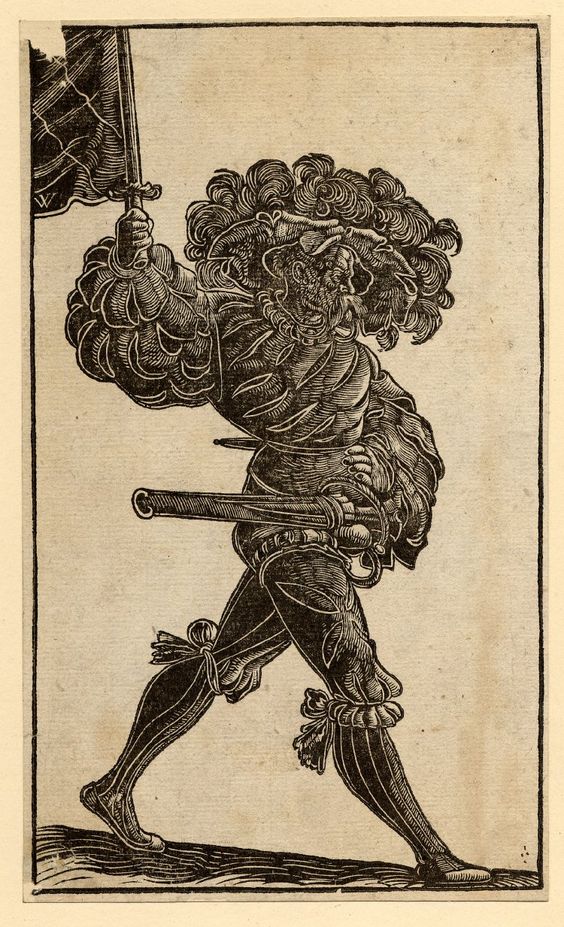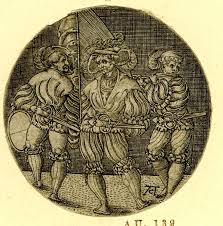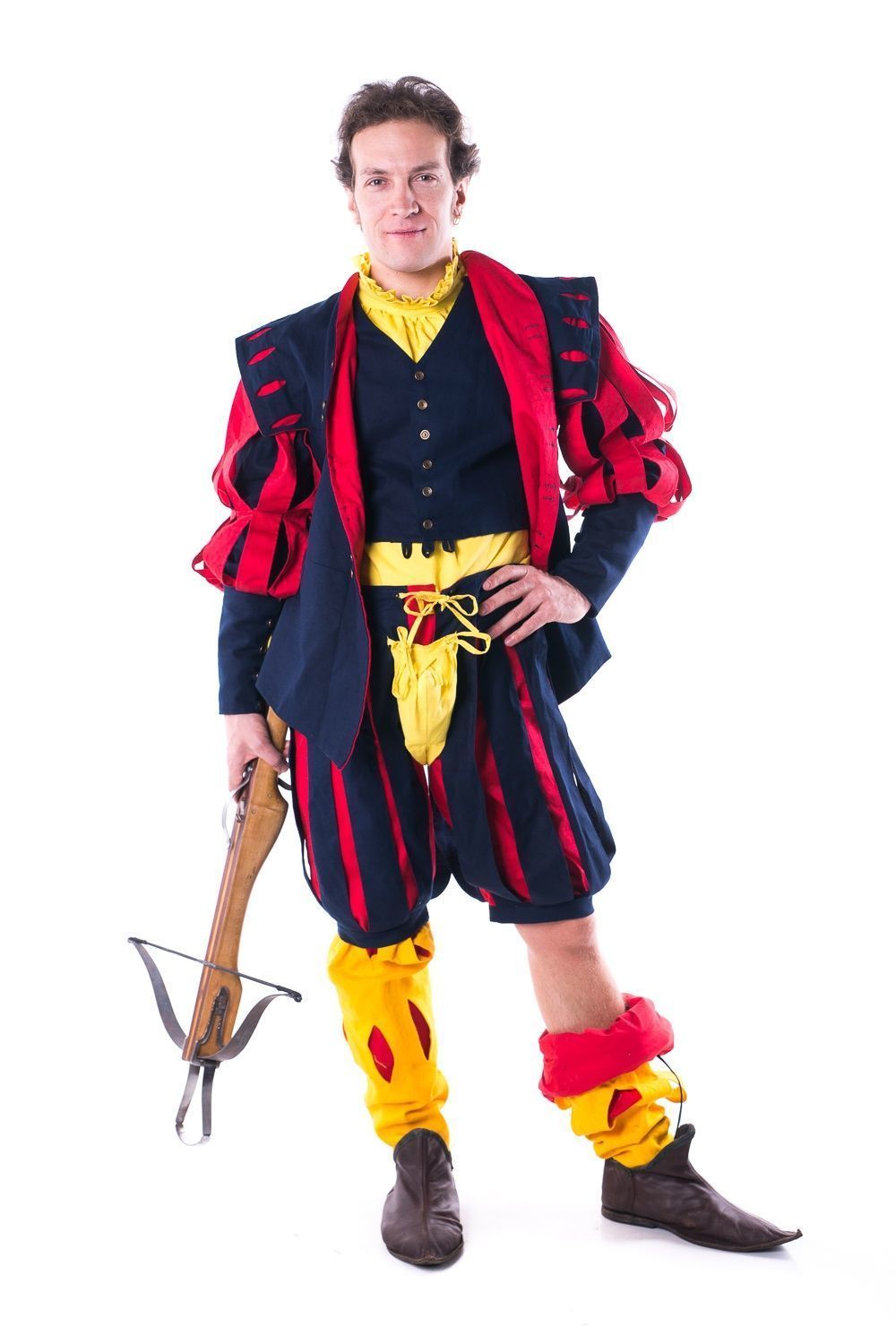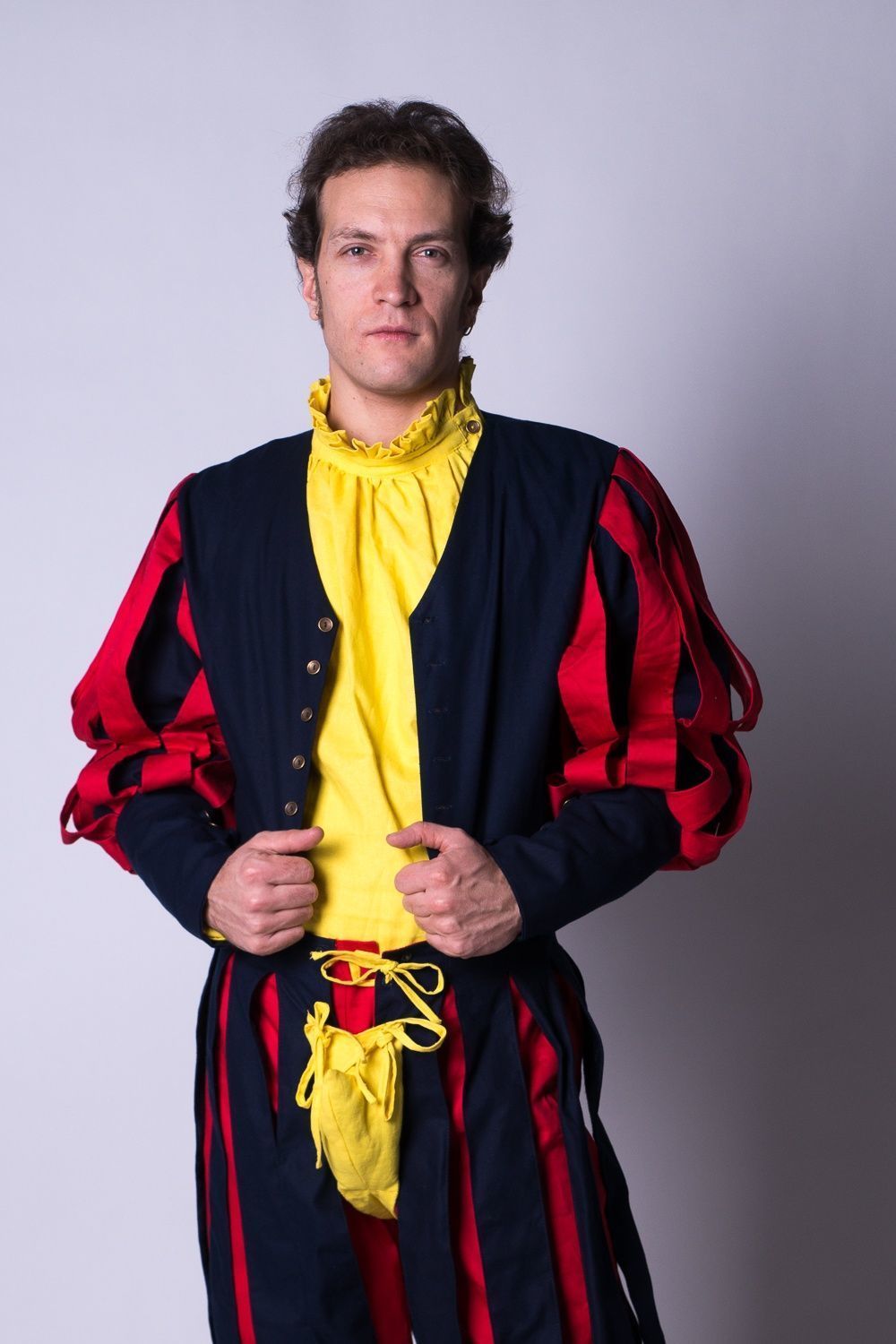Bright and recognizable charachter of german sellsword landskneсht recently gains in popularity on the medieval festivals. As a result, separate events dedicated to culture and life-style of landsknechts have appeared. In our turn, we’d like to say few words about the main detail of landsknecht’s look - costume.
By the last quarter of the XV century, fashion had evolved into the tight-fitting laced garments with a lot of colourful panels and details. But on the beginning of the XVI century, it was to go into reverse accenting not the tenderness of body, but strength and robustness.
The main elements were left unchanged.
For example, paned sleeves were popular in the XV century, and in the XVI century outer lay was split in a way to let the interliner spill out. Victorius Swiss troop, who plundered the defeated Burgundian camp and stuffed the doublets with rich looted fabrics, is consider to be an ancestor of such style. Landsknechts were german variant of swiss mercenaries, and mode of dress was partially taken from them.

Urs Graf, 1527-1600
Simply cutting on the chausses and the jerkins was as popular as paning. Long strips of material, sometimes with lining, were sewn down the base of garment. Thin and soft materials were used for lining, e.g.silk that was appeared through the panes.

Allaert Claescz, 1520-1550
Undershirts of that period had T-shaped cut with stand-up collar, to which ruffs were sewn down. Often but not always, there were no fastenings on the collars, so shirt could be pushed through the neck like a pullover. But on the woodcuts you can see shirts with buttons or lacing on the neckline.
Leather jerkins were very important piece of clothing those times not only for practical reasons, e.g. protection from weather, but also during the battles. It created a character of agressive masculine warrior, as that particular character of german soldier dominated in the first part of century.





0 Comentarios
Steel-mastery.com